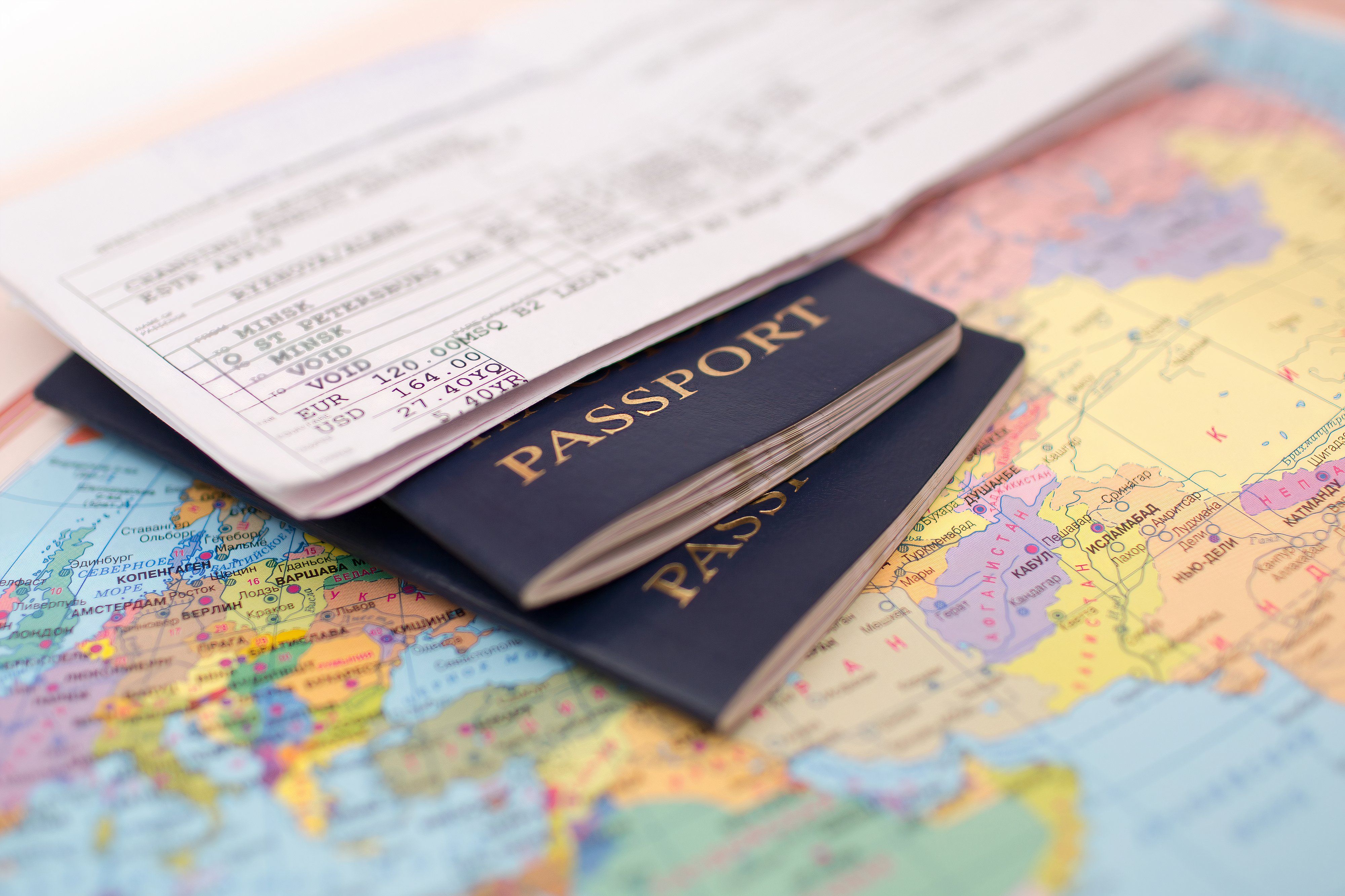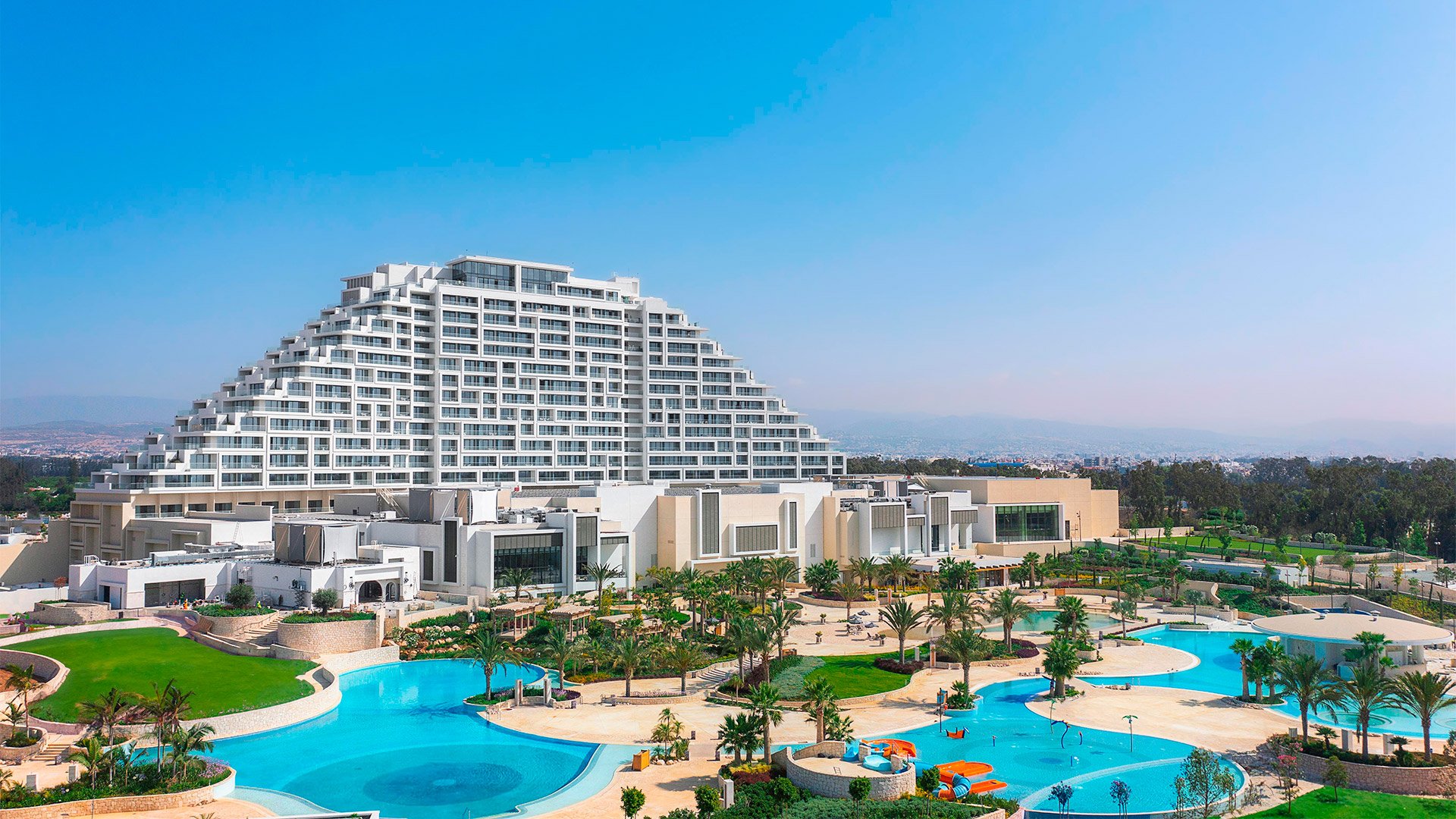They were the squirts heard around the world. A handful of anti-tourism protesters doused visitors to Barcelona with water pistols during a demonstration this month, chasing them off restaurant terraces.
As images of the aquatic assault hit the press from the US to China to Australia, and triggered a branding crisis for the Spanish city, the pistoleers were condemned by tourism executives for scaring visitors away.
One Must-Read
This article was featured in the One Must-Read newsletter, where we recommend one remarkable story each weekday. Sign up for the newsletter here
Organisers say the stunt was unplanned, but understandable. “People are pissed off,” says Martí Cusó, who helped direct the 3,000-strong protest march. “It’s normal that if what’s closest to you is a hotel, or tourists on a terrace, then the unhappiness gets channelled towards them.”
The backlash against tourism, however, extends far beyond Barcelona. Europe has been dubbed the world’s museum, and the Mediterranean has thrived as its beach resort. European countries hosted 709mn international visitors last year, with rising numbers coming from North America but the vast majority travelling within Europe.
But in some countries the mass of pleasure seekers has grown so great that, from Venice and Amsterdam to Lisbon and the Greek island of Santorini, the patience of locals has snapped.
More than anywhere else, Spain is on the front line. It is the world’s second-most visited country, receiving 85mn foreign travellers last year. It depends more on tourism than France, the top destination, and receives more visitors per capita.
Pressure has been building for years as numbers climb, but this year the strains in Spain have become unbearable. Residents complain that housing has become unaffordable, public transport is buckling, medieval town centres are being “Disney-fied”, water supplies are being depleted, and antisocial behaviour is rife. From Benidorm to Magaluf, Spaniards remain agog at drunk Britons engaged in “balconing”, the life-threatening activity of clambering between balconies or leaping from them into a pool.
Many are now saying enough is enough. In the past three months anti-tourism protests have drawn 56,000 people across the Canary Islands and 10,000 people on the island of Mallorca, where locals rose early to “occupy” one of its most Instagrammed beaches.
On the mainland’s southern coast, more than 5,000 turned out in Málaga along with several thousand in Alicante and Cádiz. There have been demonstrations in Seville, in San Sebastián, and even in the Lavapiés district of Madrid, one of the most voguish European capitals. The word of the summer here is “tourism-phobia”.


Despite the soaking given to tourists in Barcelona, the goal of protests is not to vilify or blame individual visitors, says Cusó. “They are not the ones responsible. The responsibility lies with the tourism industry and governments that have allowed the industry to do whatever it wants,” he says, a sentiment echoed by other demonstrators.
Seated in a rare bar still frequented by locals within the stone walls of Barcelona’s Gothic Quarter, he sips a €1.60 coffee and laments the difficulty of finding such prices in a world of Starbucks and inflation. “What has marked Barcelona is the violence of tourism in the way it occupies public spaces, privatises things and expels people,” he says.
Spain is becoming a European test case of whether the fury can be turned into a force for renewal — and not destabilisation.
After all, rejecting a sector that is the economic lifeblood of many places is dangerous. Over the course of six decades, the industry has become an engine of jobs and profits. It has lifted Spain up the ranks of wealthy countries and accounts for 12-13 per cent of national GDP. But one slogan in the Canary Islands summed up a common sentiment: “Tourism, yes. But not like this.”
Jordi Hereu, Spain’s tourism minister, is mindful of finding the right balance. The country’s visitor record last year was “an unquestionable success”, he says. Its tourist promotion agency predicts that visitor numbers from June to September will be up 13 per cent from a year ago. But Spain must remember that its tourist magnets are also home to its people, Hereu adds. “We must listen to the demands, wherever they come from, because without citizens there are no tourist destinations.” The question is, how can its tourism sector be fixed — and at what economic cost?
Europe’s travel hotspots are passing through the stages of what the academic George Doxey labelled an “irritation index”.

The initial arrival of visitors generates euphoria, he wrote as mass tourism accelerated in the 1970s. That gives way to apathy as they are taken for granted, followed by annoyance as saturation approaches. The final stage, antagonism, is marked by open expressions of hostility aimed at tourists.
As long ago as 2001, the Canary Islands introduced a moratorium on new construction in tourist areas in an effort to control numbers. Ten years ago, amid social unrest over eurozone austerity measures, Barcelona saw its first large-scale protests against tourism. But since then the nature of the problem has changed.
First, the search for experiences and authenticity went viral: more tourists started leaving beaches and city centres to flock to neighbourhood festivals, isolated villages and natural parks that were not used to seeing them but found themselves promoted by travel influencers.
Then Covid-19 struck. Residents had a sudden taste of having their homes to themselves again, but with a costly flipside: governments racked up huge debts to compensate for the disappearance of tourism income. When the pandemic subsided, travellers returned with a new hunger and policymakers were desperate to welcome them back.
This moment is “qualitatively different” from the long-existent issue of mass tourism, says Angelos Varvarousis, an academic and urban planner based in Barcelona and Athens. “It’s not a matter of the numbers, it’s that towns, regions and even whole countries are turning into touristified societies. Which means that their landscapes, their economies, their self-images are being operationalised to serve tourists. It’s a form of colonisation.”
In Barcelona’s case, the discontent unifies two strands of social life that are normally opposed: conservative snobbery about lower classes of visitors and the leftwing anti-capitalism of a city with anarchist roots.
But the tourism industry is eager to downplay the significance of the protests. Jorge Marichal, who owns hotels in the Canary Islands and heads the industry group for hoteliers CEHAT, blames the “tabloid press” for amplifying them. “We have one of the most competitive tourism economies in the world, and people say that the model has to be changed? What we need to do is get to work,” he says.
Arturo Mas-Sardá, chair of the PortAventura amusement park and hotel complex on the Catalan coast, says it is necessary to “de-dramatise” the issue and do a better job of communicating how “tourism has enormous positive effects in terms of GDP and the number of jobs it generates”.
Referring to the water pistols, he says: “Obviously when things like this happen, they attract attention and have an effect, but the protesters are very much in the minority. What’s true is that we have to be aware that tourism needs to be managed.”
The proposed remedies for overtourism can be divided into four categories. The first, and ostensibly the simplest, is better oversight and tighter controls by regional and municipal governments.
Officials in Spain are cracking down on the abuse of public spaces. Across the Balearic Islands, a decree approved in May bans people from drinking outside authorised venues and orders party boats to stay away from the coast. San Sebastián has limited tour groups to 25 people to reduce pavement congestion. Barcelona has shifted to online-only ticketing for its Parc Güell and had a local bus route removed from Google Maps so tourists do not use it.

In many tourist centres, fines for urinating in the streets, and even in the sea, are multiplying. Although rising summer temperatures do not deter everyone, they are helping efforts to spread visitors out across the year.
But many local residents demand new measures to address the most painful economic pinch point: housing. As property supply is reduced by Airbnb-style apartments and foreigners’ holiday homes, soaring rents have left restaurant and hotel staff living in caravans, tents or cars on Greek and Spanish islands. The problem is exacerbated by the fact most tourism jobs are low skilled and low paid.
In response, Lisbon has suspended the issuance of new short-term rental licences. Barcelona has taken the most drastic action, vowing to close down its 10,000 Airbnb-style apartments — which account for 40 per cent of visitor beds — by late 2028.
But it is facing an array of legal challenges from property owners. The move would penalise the many families with children who stay in them because hotels are too expensive, says Marian Muro, director-general of Apartur, a lobby group for holiday apartments. “The city will not have the necessary accommodation. So the repercussions could be huge,” she says.


The second remedy is to change the kind of tourists a destination attracts by going upmarket — and in Barcelona’s case to ward off stag and hen parties. “We don’t want the tourists who come to do what they can’t do in their own countries,” says Mateu Hernández, director-general of Turisme de Barcelona, a public-private agency promoting the city. “We don’t want the tourists who come to get drunk. We don’t want the tourists who come here to eat cheaply.”
But he will not replicate the blunt “stay away” campaign that Amsterdam directed at boozy Britons last year, saying it did not work. Instead the plan is to switch to high-end marketing focused on Barcelona’s fine restaurants, music festivals and the artistic heritage of Picasso, Gaudí and Miró.
Barcelona wants to turn its hosting of this year’s America’s Cup sailing competition, sponsored by Louis Vuitton, into an emblem of luxury. “A commitment to quality tourism is a guarantee of increasing the quality of employment too,” says Hernández. “It’s a virtuous circle.”
But others warn that too much elitism is not viable and even classist. Iñaki López de Viñaspre, co-founder of the gourmet Sagardi restaurant group, noted that people who fell in love with Barcelona while eating sandwiches as students could return two decades later as big spenders.
He nods to a group of six twenty-something women, from Portugal and Italy, who had dropped in for a drink at the bar of one of his eateries. “So, what? You’re going to forbid these girls from coming?” he asks. “They’re part of society.”
The third solution to overtourism, pushed by many in the travel industry, rests on the idea that the root of the problem is not too many people but too little capacity.
Places only feel overwhelmed if they have not been prepared to cope, they say. What is needed are co-ordinated investments in housing, urban transport and water systems. It is not a diagnosis promoted by governments, because it pins the blame on them. While Spain has built good airports and highways, tourism at local level was for decades a story of policymakers — from right and left alike — competing for business and failing to plan, industry figures say.
“They’ve not realised that infrastructure has to keep pace with the growth of the population,” says Marichal, of the hotel lobby. “I can give you 1,000 examples. Take a typical small fishing village. Since the 1960s it’s turned into a tourist destination. [But] there’s no sewerage system, no investment in roads, not enough housing for people who work in the tourism industry.”
Muro, who has held a series of jobs in the tourism industry, says governments had spent years holding press conferences to celebrate the number of tourist arrivals. “But if you’ve not gone through the exercise of understanding the economic activity, making forecasts and having in your head what’s coming next, what’s going to happen? You get this.”
The final, most radical proposed solution is degrowth, or shrinking the overall numbers of international tourists. The anti-capitalist version rejects the notion of foreign travel as a right, stresses the need to cut carbon emissions from transport and calls to attention those who still cannot afford any kind of vacation. Ernest Cañada, a researcher at Alba Sud, a group critical of tourism, says: “What we are asking for is a change in tourism policies to enable the majority of the population to organise holidays close to home.”


Others favour using tourism taxes to discourage visitors. But nowhere in Europe has come close to the $100 per night fee levied by the Himalayan kingdom of Bhutan. Barcelona’s tax is a maximum of €6.75 per night and its Socialist-led government has a more moderate vision of limits.
Jordi Valls, deputy mayor, says the city needs more industry and technological innovation to offset tourism’s economic weight. It accounts for 14 per cent of city GDP and he says the government does not want that proportion to be much higher. “We don’t want to be absolutely dependent,” he says.
On the Rambla, the tourist strip where the water from the pistols has long since dried, change is not yet in the air. Jaume Doncas Pros, owner of the Casa Beethoven music shop, suspects hypocrisy among some of those calling for visitors to go home. “Most of the protesters, maybe tomorrow they’re going to Rome or Paris,” he says. “We are all tourists today.”
The visitors themselves seem unperturbed and their behaviour little changed. The street outside is filled with the guttural sound of 19 members of an Italian stag party, who are belting out songs between swigs of Amaro Montenegro liquor. Stefano Pausini, the groom in a bright pink T-shirt, is not remotely troubled by any protests. “I heard about them,” he says. “But because it’s my wedding party, I don’t care.”
Additional reporting by Carmen Muela and Giuliana Ricozzi











